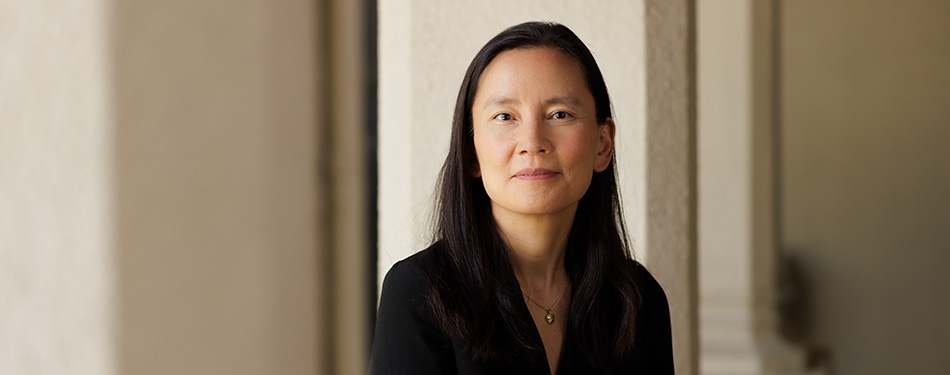Julia Lee, ’05, brings experience in family law, juvenile justice, domestic violence practice to Michigan Law’s clinical faculty.
Julia Lee has devoted her professional life to serving families, children, and victims of domestic violence in hands-on, pragmatic ways, including a recent seven-year stint as supervising attorney of the Supporting Families Workgroup at the Legal Aid Foundation of Los Angeles (LAFLA).
Now, Lee is bringing those experiences as a public interest attorney to the University of Michigan Law School, eager to enrich and inform the student experience at her alma mater as a clinical assistant professor of law.
“It’s incredibly exciting to be coming back to the University of Michigan,” said Lee. “The university provided such a foundational experience for me, and I look forward to helping today’s students have an equally valuable experience at Michigan.”
You can have notions about how the law should work, but that isn’t always reality. The clinics provide Michigan Law students the practical experience of being a lawyer.
An advocate for marginalized populations
Lee began her legal career working on statewide juvenile justice reform at the Southern Poverty Law Center before moving onto a family law and domestic violence role at the Legal Aid Society of the District of Columbia.
At both organizations, Lee noted the pressing legal needs of marginalized and often overlooked populations, and she felt a genuine, intrinsic call to leverage her education and training to provide professional support.
“Those experiences helped me think more creatively about making the most of the resources I have to ensure representation for clients is as robust as possible,” she said.
Lee carried those lessons into her work with LAFLA, an organization that provides low-income residents across Greater Los Angeles with various justice-oriented resources, including employment, eviction, and immigration legal services.
She directed two court-based domestic violence clinics at LAFLA in addition to leading the foundation’s family law and domestic violence practice.
Though absorbing the tales of domestic violence survivors can be emotionally taxing, Lee found inspiration in the courage of her clients to stand up and take bold, affirmative steps to regain safety in their daily lives. Her clients’ tenacity to battle such a personal, intimate, and acute struggle only strengthened Lee’s resolve.
“I wanted to ensure we were a true ally for our clients in the face of their hardships,” Lee said.
That allyship became difficult amid the pandemic, as courts embraced remote innovations that challenged LAFLA’s low-income clientele.
Committed to ensuring LAFLA clients retained access to justice and the courts, Lee oversaw the creation of a remote hearing studio that provided domestic violence survivors a safe, convenient environment to face their abuser alongside an advocate.
Lee’s team also produced a domestic violence restraining order booklet filled with accessible, practical information on the restraining order process. The booklet grew to more than 50 pages and was translated into six languages.
“The aim was to reduce access barriers and to ensure low-income perspectives and needs were not minimized,” said Lee, who also led the Family Law Coalition, a group of family law and domestic violence legal services advocates in metro LA.
Serving southeast Michigan while training future lawyers
A hallmark of the Michigan Law education, these hands-on, experiential courses in the clinics allow law students to perform real-world legal work and gain “first-chair” lead responsibilities.
This fall, Lee will co-teach the Pediatric Advocacy Clinic.
“The clinic was the best experience I had at law school and one that helped me realize how much I enjoyed the practice of law and making my work meaningful to clients,” Lee said. “You can have notions about how the law should work, but that isn’t always reality. The clinics provide Michigan Law students the practical experience of being a lawyer.”
And while Lee hopes clinical work encourage some students to pursue public interest careers, she also hopes the clinics enable her to continue practicing law as well.
“There are people who need support, and I would certainly like to collaborate with southeast Michigan’s legal services community to advance issues related to domestic violence or access to justice,” Lee said.
—Daniel P. Smith

